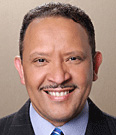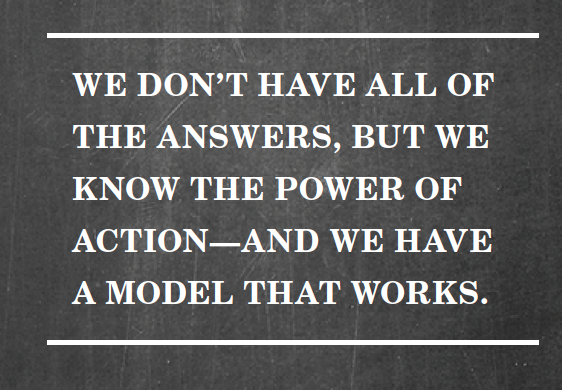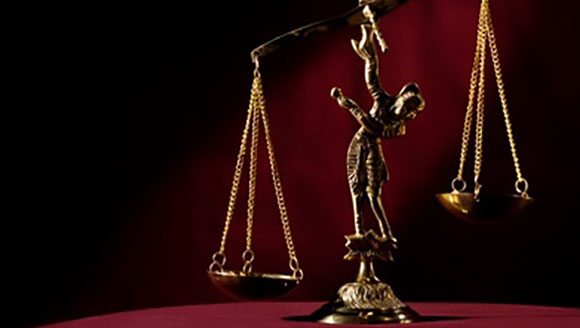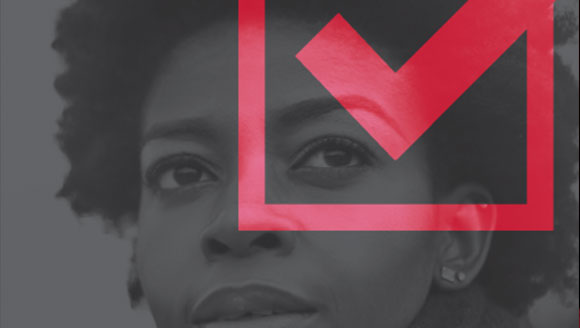 Few times in a nation’s history is the conscience of its citizens shocked and awakened across racial, economic, generational and even ideological lines. These are the times when the collective consciousness of a people also unapologetically screams that it’s time for change—and that it must start today.
Few times in a nation’s history is the conscience of its citizens shocked and awakened across racial, economic, generational and even ideological lines. These are the times when the collective consciousness of a people also unapologetically screams that it’s time for change—and that it must start today.
That time is now. 2014 was indeed a catalytic year that was propelled by cataclysmic circumstances—little accountability for law enforcement responsible for killing unarmed Black men, teenagers and children; a continual assault on voting rights; widening economic inequality gaps; and an increasingly partisan education debate far more rooted in political agendas than in putting our children first.
The theme of the 2015 State of Black America “Save Our Cities: Education, Jobs + Justice” conveys the urgency of focus around each of these areas and their interconnectedness in our ongoing quest for full equality in America.
So, what is the state of Black America in 2015? In short, on many fronts, Black America remains in crisis—and we see justice challenged at every turn.
The world watched as non-indictments of the police officers responsible for the deaths of unarmed Black males including Eric Garner, Michael Brown and John Crawford signaled that police accountability for taking Black lives was reaching a modern-day low—and that the widespread and dangerous mistrust between law enforcement and too many communities of color in America was reaching a new high…
Justice was also challenged in 2014 with an assault on voting rights following the Supreme Court’s 2013 decision in the Shelby County case…In the aftermath, we’ve seen states across the nation move aggressively to enact new voter suppression laws aimed at making registration and voting more difficult for people of color…Organizations like ours will continue to fight to protect democracy via the protection of our voting rights and pushing Congress to move the bipartisan Voting Rights Amendment Act of 2014 forward, but the battle is not ours alone. Individually and collectively, we must take the first step in ensuring our voices are heard by ensuring our votes are cast in every election.
Justice also continues to be challenged on the jobs and economic front. The start of 2015 saw the most sustained period of job creation this century. However, the dark cloud inside this silver lining is that too many people are still being left behind. Black unemployment is twice that of white unemployment. Wages are stagnant. Many people who are working are simply not earning what they need or should earn to make ends meet. Whether one calls it income inequality, upward social mobility, decline of the middle class, eliminating poverty among working people or something different, it is one of the great challenges facing post-recession America…
We don’t have all of the answers, but we know the power of action—and we have a model that works. Through the National Urban League’s 50-city, $100 million Jobs Rebuild America initiative and our steadfast commitment to workforce development, we have made it our business to train and prepare people for good jobs that pay good wages. We have put more than 160,000 people to work during my tenure here alone.
We have also fought victoriously for the passage of bipartisan jobs bills like the Workforce Innovation and Opportunity Act (WIOA), which is allowing millions of unemployed and underemployed workers and urban youth of color to receive the job and skills training, as well as support services, they need to chart a path to a better future…
Lastly, justice has been challenged regarding education—undoubtedly one of the most pressi ng civil rights issues of our time. Disparities remain in both the K–12 and higher education system. Sixty years after the landmark ruling in Brown v. Board of Education ended segregation in America’s public schools, separate and unequal is still a pervasive reality…
ng civil rights issues of our time. Disparities remain in both the K–12 and higher education system. Sixty years after the landmark ruling in Brown v. Board of Education ended segregation in America’s public schools, separate and unequal is still a pervasive reality…
Black and Brown students are less likely to share classrooms with white students. We also see separate and unequal levels of expectations and resources in our schools that continue to break down along economic, and thus largely color, lines. The Organization for Economic Cooperation and Development (OECD) found that the U.S. is one of few advanced countries where more educational resources are provided to schools with richer students than to those serving poor children.
More must be done to ensure that all districts are held to high standards, that those standards are consistent across the country, and that schools, teachers and students in all schools and neighborhoods have the necessary resources to succeed.
In 2014, via the National Urban League’s 360-degree Put Our Children 1st television, radio, digital and social media platform, the Urban League Movement took an aggressive public posture in support of higher education standards (widely referred to as Common Core State Standards) and improved accountability combined with equitable resources and implementation…(To learn more about the campaign, visit www.putourchildren1st.org.)
In 2015, our stake in the ground around education continues to deepen…For the first time in the history of the State of Black America report, in addition to the National Equality Index™ and Metro Equality Index Rankings, we have included a 50-State Education Equality Index and ranking of Black–White and Hispanic–White equality in educational achievement…
We are a nation that has to confront today’s challenges with a clear understanding of our past. This is our work, and we will succeed because we are resilient—buoyed by our victories of yesterday, our progress of today and our hopes for tomorrow.
The time is now, and as long as justice is challenged on any front, we will keep pushing on every front.
Marc H. Morial
President & CEO,
National Urban League


 Equality Index
Equality Index  Senate Report
Senate Report  2020 SOBA Essays
2020 SOBA Essays  2019 Report
2019 Report 